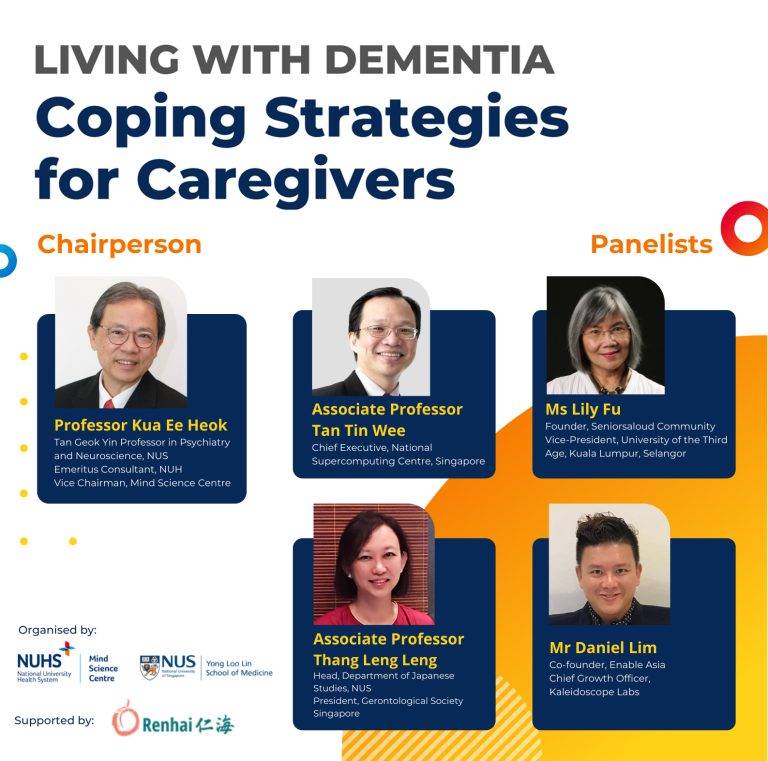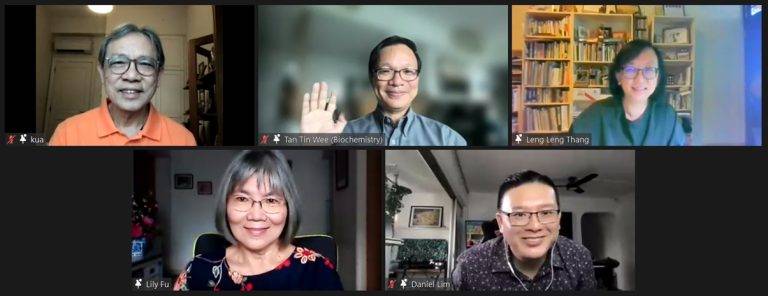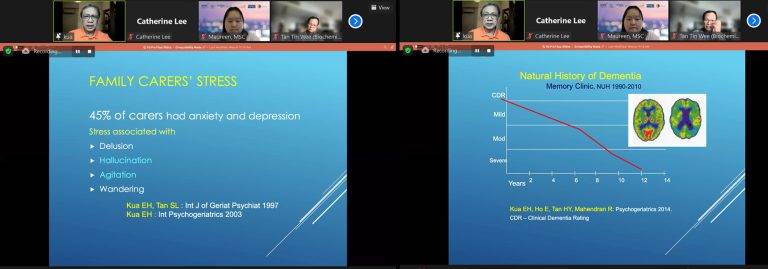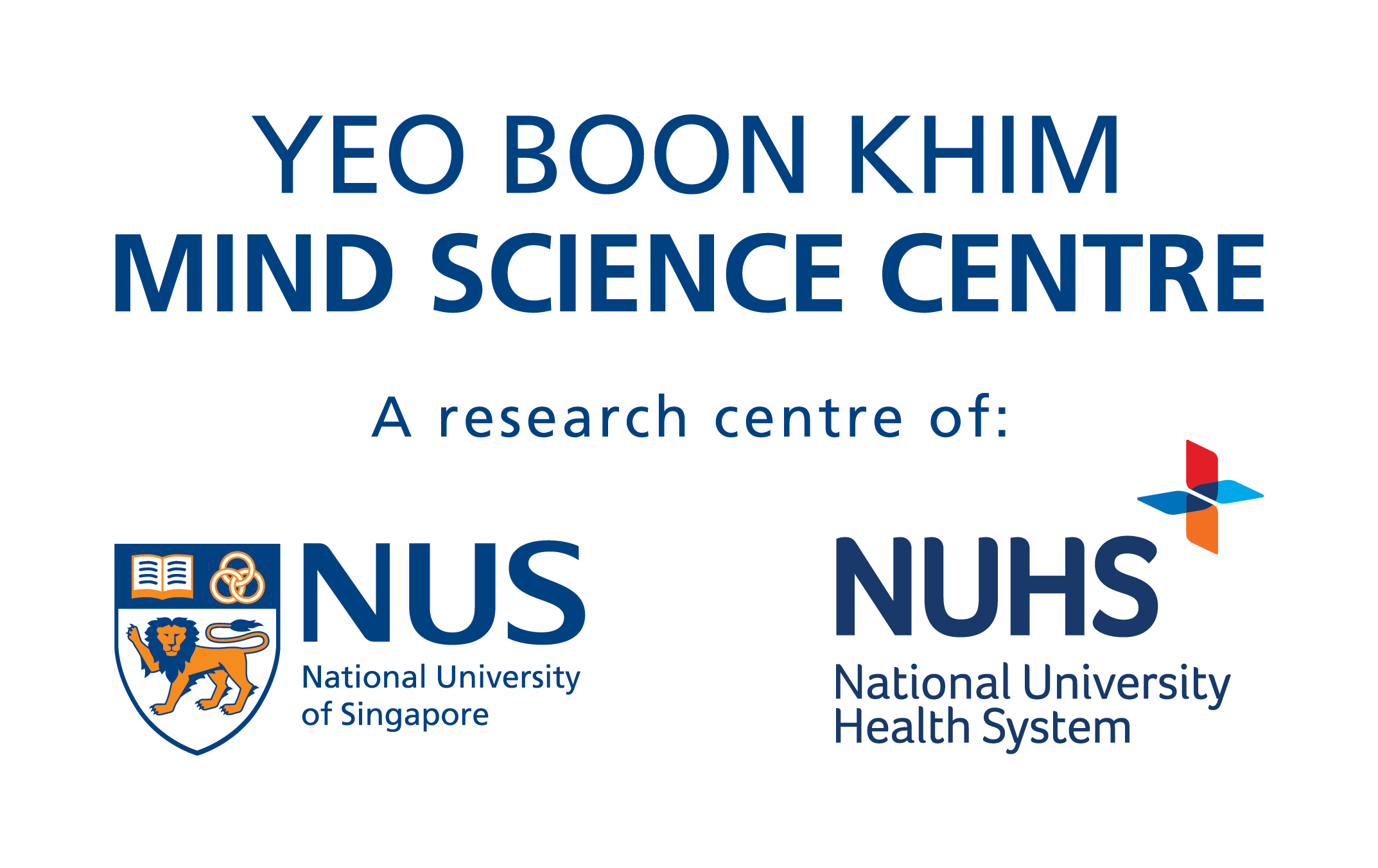‘COPING STRATEGIES FOR CAREGIVERS’ WEBINAR HIGHLIGHTS: 24 APRIL 2022
MSC is proud to announce the launch of our latest initiative – ‘Living with Dementia’ webinar series, which seeks to build the foundations of a strong dementia support network through informative talks and discussions. This initiative was made possible by the generous donation from Professor Hong Hai.

The team will be bringing you distinguished panelists from various fields with the aim to establish a platform for Asia-centric knowledge about living with Dementia. This information will be made readily available to the public through our website, with the aim of developing a multi-faceted archive of relevant information, which is relatable and updated.
The inaugural topic was centered on the caregiver experience. Our panelists, who are caregivers themselves, shared their experiences, provide some tips on how to care for people with dementia and introduce some useful self-care methods for caregivers. Research data on the current state of dementia in Singapore and local studies on psychosocial interventions were presented.

The one-hour webinar saw a total of 218 attendees and we were glad that the sharing was well-received by the public.
Watch the full recording to find out more!
Click on the video description to navigate through the time marks, which denotes the key segments during the webinar.
Key Messages

- There are many things to be done to improve the quality of life of the people who are in their mild phase of dementia. It is usually at the moderate phase of dementia that we see the caregivers are experiencing more stress. It is essential that we understand the usual emotional reaction to the news of our loved ones having dementia. In Asian context, it usually involves shock, fear and anxiety. The key is to start thinking about it early, so when it happens, we are better able to cope with it. There needs to be a concerted effort to build caregiver preparedness as we are either caregivers or soon-to-be caregivers.
- Studies have found that telephone counselling was the most useful intervention for caregivers, as compared to information book and monthly support group. This may be due to the timeliness of the support given and the human touch of hearing a voice. Beyond that, accessibility to information is of great importance as well.
- It’s about having a support network in the community, such having the spouse, adult children and helper working as a group to arrange a schedule for caregiving. This allows for pockets of time for some personal activities, which will help with the feeling of being overwhelmed.
- Despite the frustrations, it’s about finding small moments of joy as you spend quality time with your loved ones. Plan for activities that are feasible at the current state, so that you will enjoy the caregiving time with the elderly.
- Change is difficult but it is possible. Take steps to accept the change and adjust your lifestyle. Develop your own ways to handle the situation so that you can be comfortable in the new situation as well.
Relevant Links
We hope you enjoyed this webinar, and we look forward to seeing you again. Mind Science Centre has shared the video for educational purposes, in line with our goals to share knowledge and benefit the community. Please do not replicate the videos or slides without permission.
For more information and free online mental health resources, sign up for our mailing list HERE.
